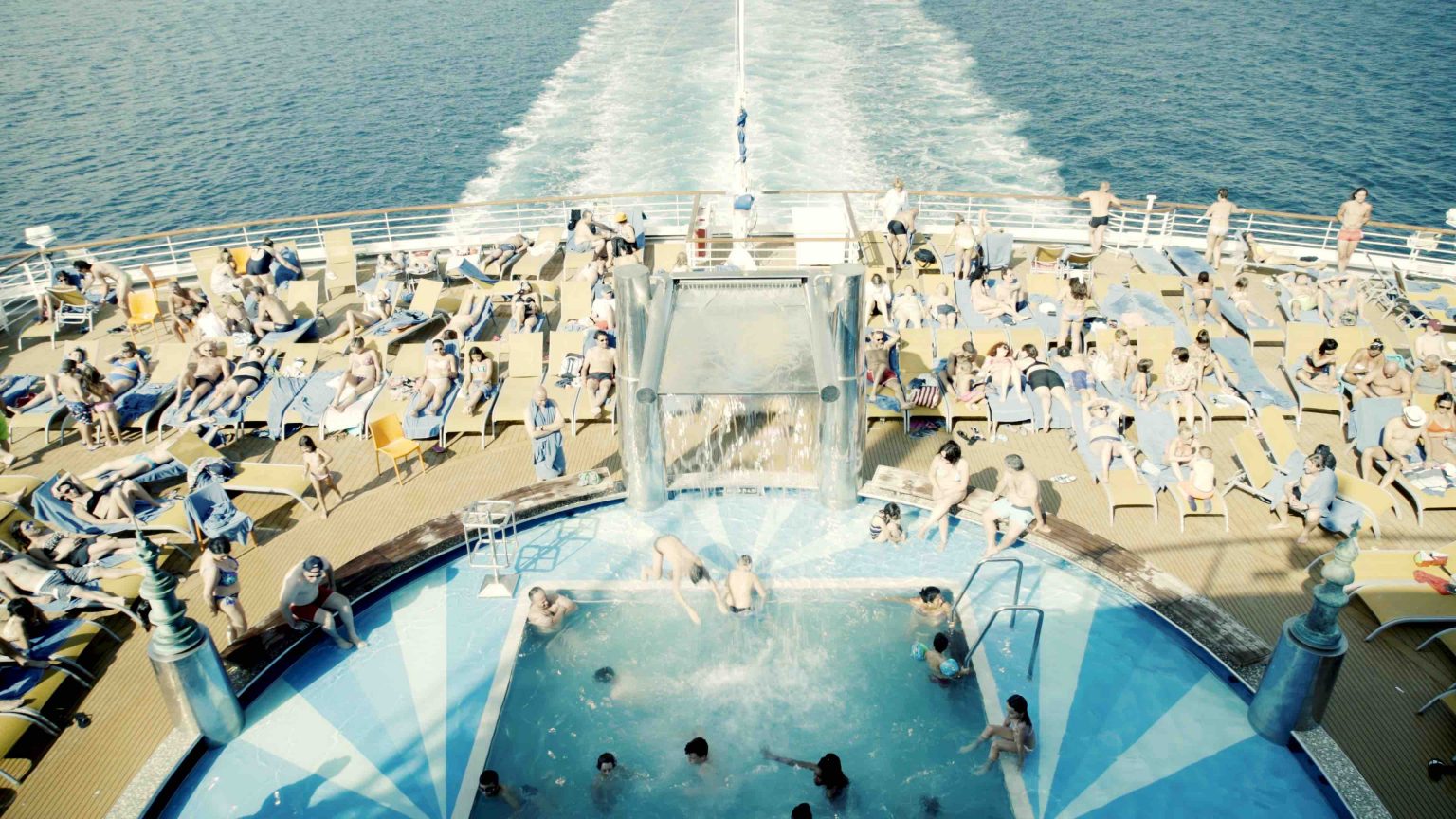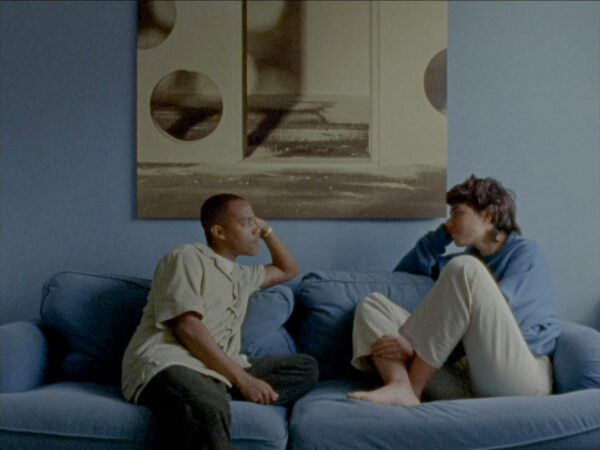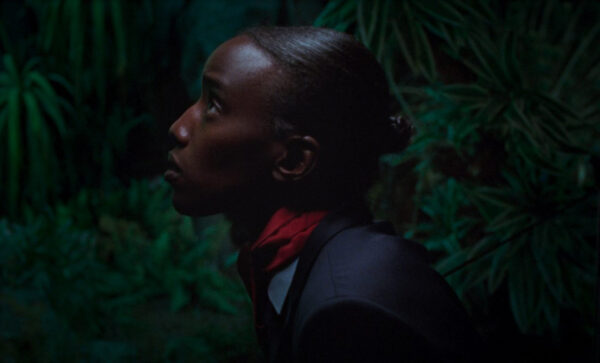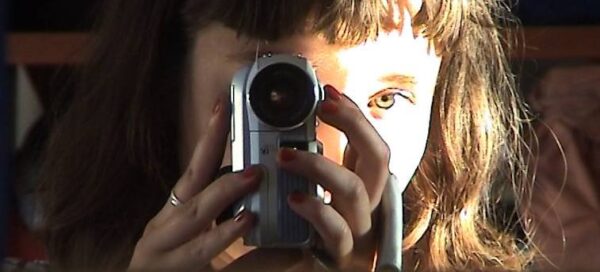Utopiyin, Utopiyang
All Inclusive
A humorous and quietly sharp observational documentary set aboard a cruise ship.

Cruises: the ultimate low-effort all-inclusive summer break for some; a suffocating white picket fence nightmare for others; and, in the context of the COVID-19 pandemic, a real-life fever dream: the UK vessel Diamond Princess was host to one of the first major outbreak clusters outside of Mainland China, and passengers remained quarantined on board for weeks after it docked in Japan. And yet, from Week 4 of My Darling Quarantine Short Film Festival, Corina Schwingruber Ilić’s All Inclusive emerged victoriously as the Audience Favourite, a humorous and quietly sharp observational documentary set aboard a cruise ship.
In a mere ten minutes, the Swiss filmmaker delivers a slice of 24 hours in a floating microcosm of society, in which the middle class blindly conforms to organised holiday routines while hospitality workers labour to sustain the inherent artificiality around them. During her two weeks on board, Schwingruber Ilić stayed as invisible as possible, shooting with handheld cameras and stabilising the image in post-production, with an inconspicuously voyeuristic result—we mostly find ourselves on the edge of the action, tucked away or part of a crowd, and so activities unfold with no self-conscious performing for the camera.
All Inclusive opens with a long shot in which we observe a man awkwardly manoeuvring through a transparent flume ride. While this amusing nugget plays out in a lower corner of the screen, the majority of the frame is taken up by clear skies. We cast our eyes on this expanse before resting them on the ship. The film establishes the tension between freedom and entrapment, open skies and seas versus sleek uniformity within those opening seconds. Similar compositions recur throughout the film, with the deck’s railings as barriers to uncontrolled wilderness. This opening is followed by a woman in a pool, shadowed by an exit sign lurking in the background and an arrow pointing somewhere outside the frame. Before the film’s title even appears, two shots have signaled to us: ESCAPE.
A holiday, of course, is an opportunity for escapism, an idea linked to utopian fantasies of alternative worlds. But to the sceptical outsider, the excessive consumerism and mass-tailored entertainment of cruise ships offer nothing of the sort. A crowded indoor hot tub, conga lines through cramped dining areas, amateur choreographed dancing, everyone dressed in gleaming white—Schwingruber Ilić has selected imagery that denotes uniformity, anonymity, and the stripping of self-expression. Maybe for these vacationers that’s where the escape lies; there’s a carefree side to conformity. The shots of the ship’s living units—an endless grid of glistening white pods—have an eerie authoritarian feel to them, designed with surveillance in mind.
These shots are mirrored by a multitude of patterns and symmetries that dominate the film and, alongside the soft and bright pastel colour palette, create a perpetual sense of sameness. The artifice carries quasi-futurist overtones: too clean, too shiny, too symmetrical, an uncanniness that peaks when a human-featured white robot makes a cutesy dance move for the camera.
In her essay “Utopiyin, Utopiyang”, Ursula K. Le Guin argues that every utopia since Thomas More’s seminal vision has been “in the author’s or the reader’s judgment, both a good place and a bad one. Every eutopia contains a dystopia, every dystopia contains a eutopia.” Knowingly or not, Schwingruber Ilić presents this duality within her observation of cruise ship holidays. The all-white dance party is showered in confetti and framed by greenery. It is an ecstatic celebration in the Garden of Eden set to an upbeat swelling soundtrack, yet it is followed by solitary staff on quiet night shifts, ensuring the façade continues.
Morning brings murmurs over breakfast and implied repetition. Le Guin reflects on utopia’s yang and yin as “the dark, mysterious wilderness surrounding a bright, safe place, the Bad Places—which then become the Good Place, the bright, open future surrounding a dark, closed prison.” That concept, gently teased out in the first shot, seeps into our reading of the ship’s hyper-organised design and activities, and concludes in the final one, when the camera looks out from the back of the ship to the waters beyond. It is a shot that looks over the border of control-dependent safety into the bright open.
In times of quarantine and cravings for human touch, we might jump at the idea of a sun-soaked holiday and the freedom to travel oceans instead of being engulfed in doom narratives, but All Inclusive presents a different dread. An audience sits in the stands and applauds men doing belly flops in the pool as part of the ship’s cringe comedy show. They watch their peers’ antics for their own entertainment, as we gaze at the crowds of pampered tourists in comparable amusement. Schwingruber Ilić attempts not to judge, but she offers an astute and droll commentary on passive consumerism and commodification of leisure, with a crafty ability to not fully divulge her own level of self-awareness.





There are no comments yet, be the first!